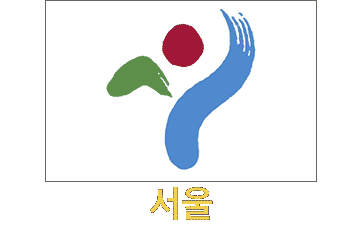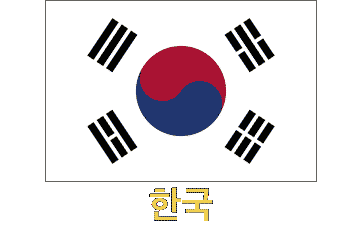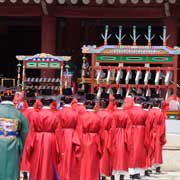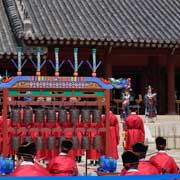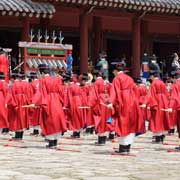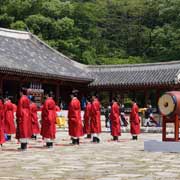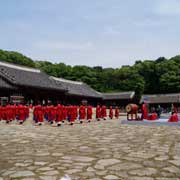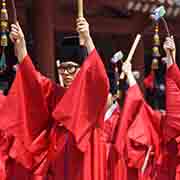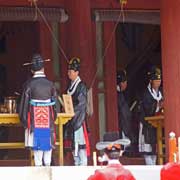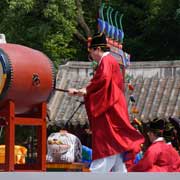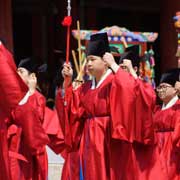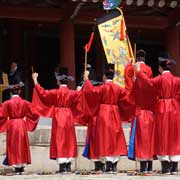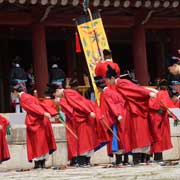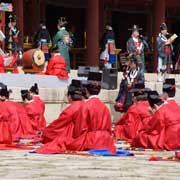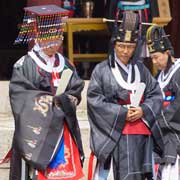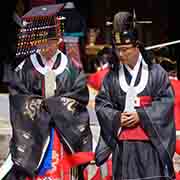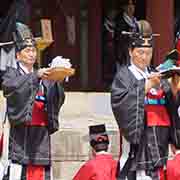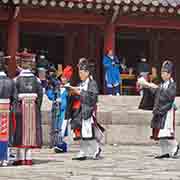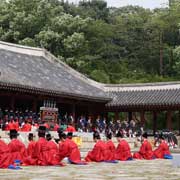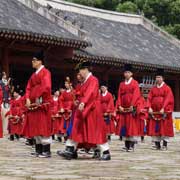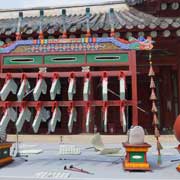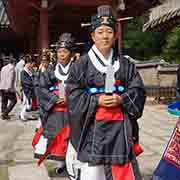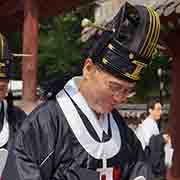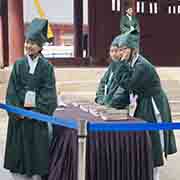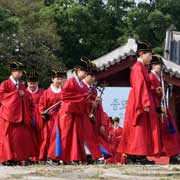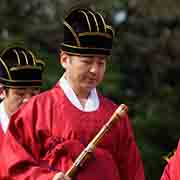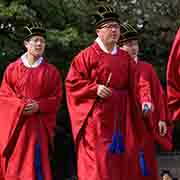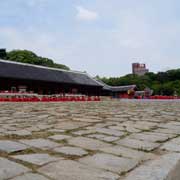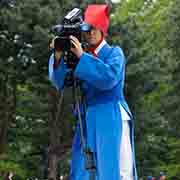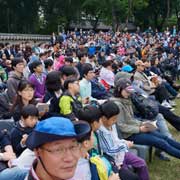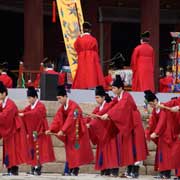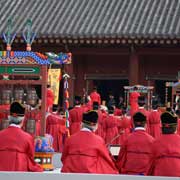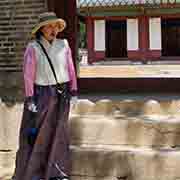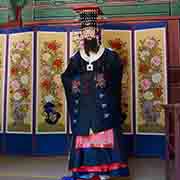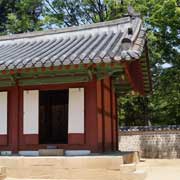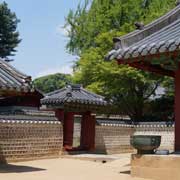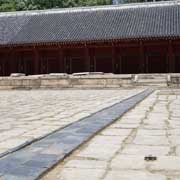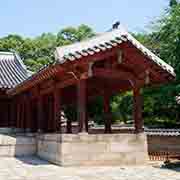Photos of The Jongmyo Daeje Ceremony, Seoul, Korea
The Jongmyo Daeje Ceremony, Seoul
The Jongmyo Daeje or Jongmyo Jerye Ceremony is a seasonal Confucian ceremony held at Jongmyo, the Royal Ancestral Shrine of the Joseon Dynasty in Seoul, to honour the past Joseon kings and their consorts, who founded the country and whose mortuary tablets are enshrined there. It was also called Jongmyo Daeje, the Great Jongmyo Rite because it was the largest and most important memorial rite held by the Joseon Dynasty. Accompanied by solemn music and dancing, the confirmed formalities of the service have been preserved almost in their original forms more than 500 years since 1464: Jongmyo Jerye could be considered the oldest comprehensive Confucian-influenced ritual culture in the world.
you may then send it as a postcard if you wish.
Originally, Jongmyo only referred to Jeongjeon (Main Hall), where the memorial tablets of Joseon’s reigning kings and queens are enshrined. Today, however, Jongmyo also encompasses Yeongnyeongjeon (Hall of Eternal Peace), where the tablets of posthumous kings and queens are enshrined and Gongsindang (Hall of Meritorious Subjects), where the tablets of esteemed ministers of the state are kept. King Taejo, the first ruler of the Joseon dynasty, started building the main building of Jongmyo, a wooden structure, in October 1394, the third year of his rule. In December of that year, he moved the capital from Gaeseong (presently Kaesong, North Korea) to Hanyang, present-day Seoul. He completed the project on Jongmyo in September of the following year.
Jongmyo Jerye primarily consists of procedures for greeting the spirits, entertaining and receiving blessings from them. Strict formalities accompany each procedure. Ritual foods and wine are offered to the spirits by the officiants, special ritual vessels are used. Jeryeak, ritual music, is played by two orchestras: Deungga, which plays on the upper terrace of Jeongjeon with no songs, and Heonga plays music with songs on the lower deck. Some numbers were composed personally by King Sejong (1418–1450) to pray for national security and prosperity, and King Sejo (1453-1455) later made some revisions to complete the music.
The dance performed by groups of red-clad dancers, called Ilmu, consists of two parts. The first part, Botaepyeong-ji-mu or Munmu, is performed with the music of “Botaepyeong” (Preservation of Great Peace), a dance to praise the civil achievements of former kings. Dancers hold a Yak (a three-holed bamboo flute) in the left hand and a Jeok (a pheasant-feather tasselled wooden bar) in the right hand. The second part, Jeongdaeeop-ji-mu or Mumu, is a dance to praise the military exploits of former kings, performed with the music of “Jeongdaeeop”, holding wooden swords and spears. The songs, music, and dancing are meant to please those officiants and all others on the scene and entertain the spirits and gods to move Heaven to bless the country and people to enjoy national security and prosperity.
The last procedure in Jongmyo Jerye is the ritual for sending off the spirits, called Mangryorye. The cloth covering the king’s spirit tablet, made from white ramie (a very durable, pure white textile fibre commonly known as China grass) and incense, used for the ancestral rite, are burned. It is believed that the ancestral spirits, who had been to Jongmyo, will return to Heaven with the smokes raised in this final procedure. Now that the ancestral spirits are entertained and worshipped with utmost sincerity, they will care for the country and for people to be happy and prosperous.
